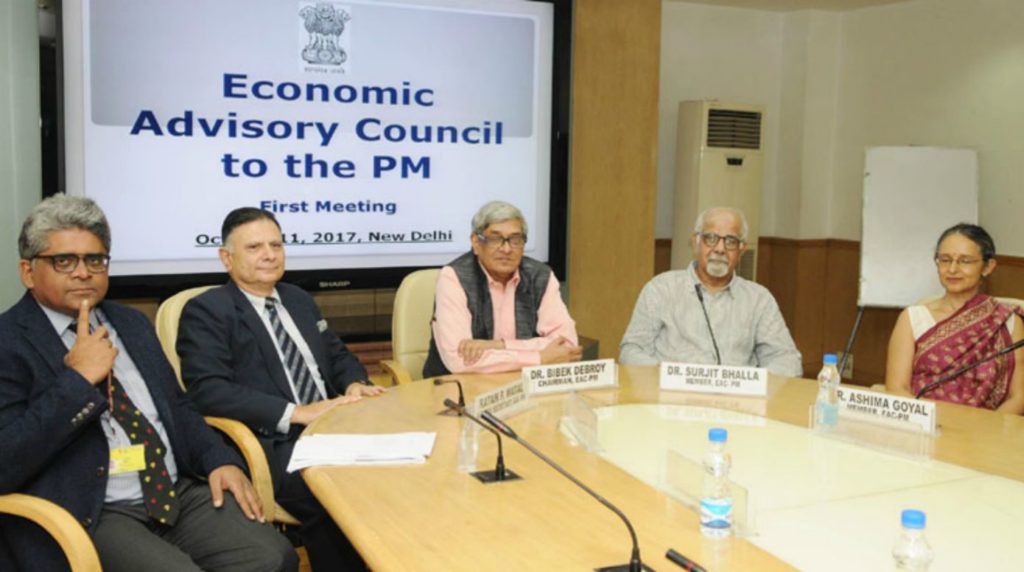Government refuses to share the details of the deliberations of EAC to the PM

[orc]The Government has refused to share details of the deliberations of the Economic Advisory Council to the Prime Minister citing exemption provisions in the RTI act. Is such refusal justified?
The government has refused to share the details of deliberations of the Economic Advisory Council to the Prime Minister (EAC-PM) under the Right to Information (RTI) act. According to the government, these deliberations may find a place in the Union Budget or may be placed before the Union Cabinet and hence have to be kept confidential. But is it justified on the part of the government to not share the information for something that may or may not happen in the future?
EAC-PM reconstituted in 2017
Narendra Modi disbanded the Economic Advisory Council to the Prime Minister (EAC-PM) set up by Dr. Manhmohan Singh after coming to power in 2014. Three years into the government, the PM once again constituted the EAC-PM with Dr. Bibek Debroy as the Chairman. The council’s terms of reference were finalised as the following.
- To analyze any issue, economic or otherwise, referred to it by the Prime Minister and advising him there on.
- To address issues of macroeconomic importance and presenting views thereon to the Prime Minister. This could be either suo-motu or on reference from the Prime Minister or anyone else.
- To attend to any other task as maybe desired by the Prime Minister from time to time.
2 meetings & 4 resource person meetings held till Mid-November
In response to an application under RTI, the NITI Aayog mentioned that EAC-PM held two meetings. In addition, it held 4 meetings with resource persons till Mid-November.
The government refuses to share minutes of EAC-PM meetings
However, the Public Information Officer (PIO) of NITI Aayog refused to share the meeting minutes of the EAC-PM. The PIO used two specific provisions in Section 8 of the RTI act, 8(1)(c) and 8(1)(i) to refuse access to this information. The PIO mentioned that the deliberations of EAC-PM have to be kept confidential as they may find place in the Union Budget or may be placed before the Union Cabinet.
Is it justified to deny information for something that may or may not happen in the future?
The EAC-PM has issued press releases both after its first meeting and second meeting. In these releases, EAC-PM mentioned the focus areas of the meeting, presentations made before it and other details of the meeting. The press release issued after the second meeting mentions that the EAC-PM is being recognized for the value addition it is making with focused time bound recommendations to move from policy to practice.
Whether the recommendations of the EAC-PM will find a place in the Union Budget or be placed before the Cabinet is anybody’s guess. Refusing access to the deliberations of the EAC-PM using this pretext will be justified only if the recommendations are implemented or dropped in a time-bound manner after which the deliberations are placed in the public domain. Without any such timelines, the PIO’s reply is only an attempt to hide information from the public.
Featured Image: Economic Advisory Council to Prime Minister